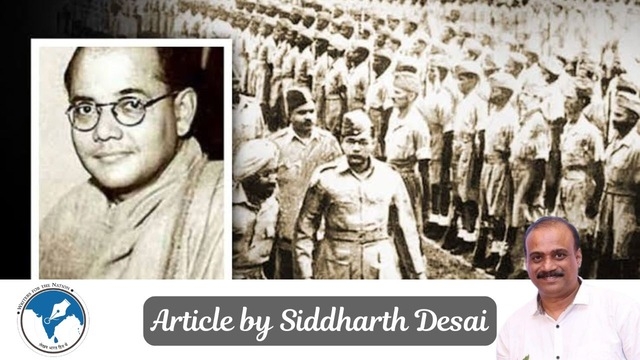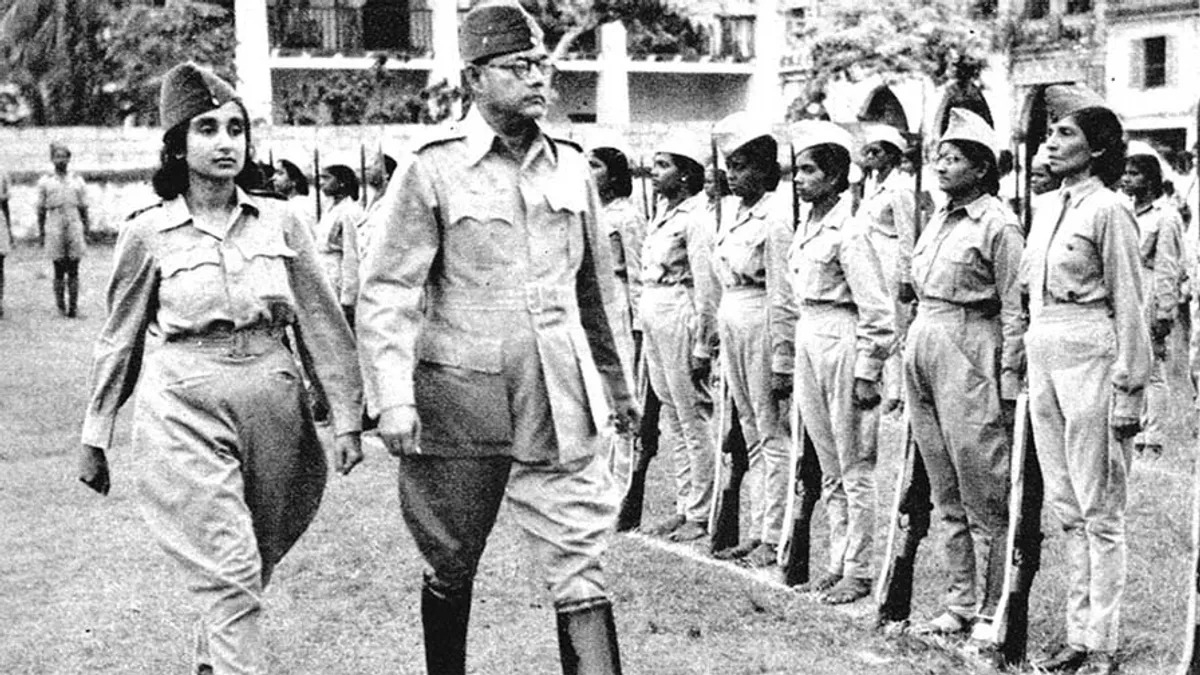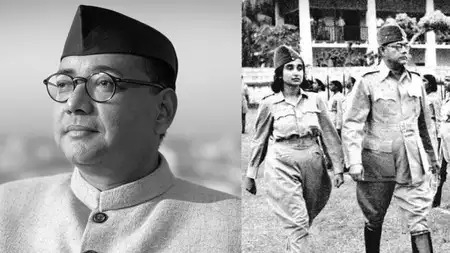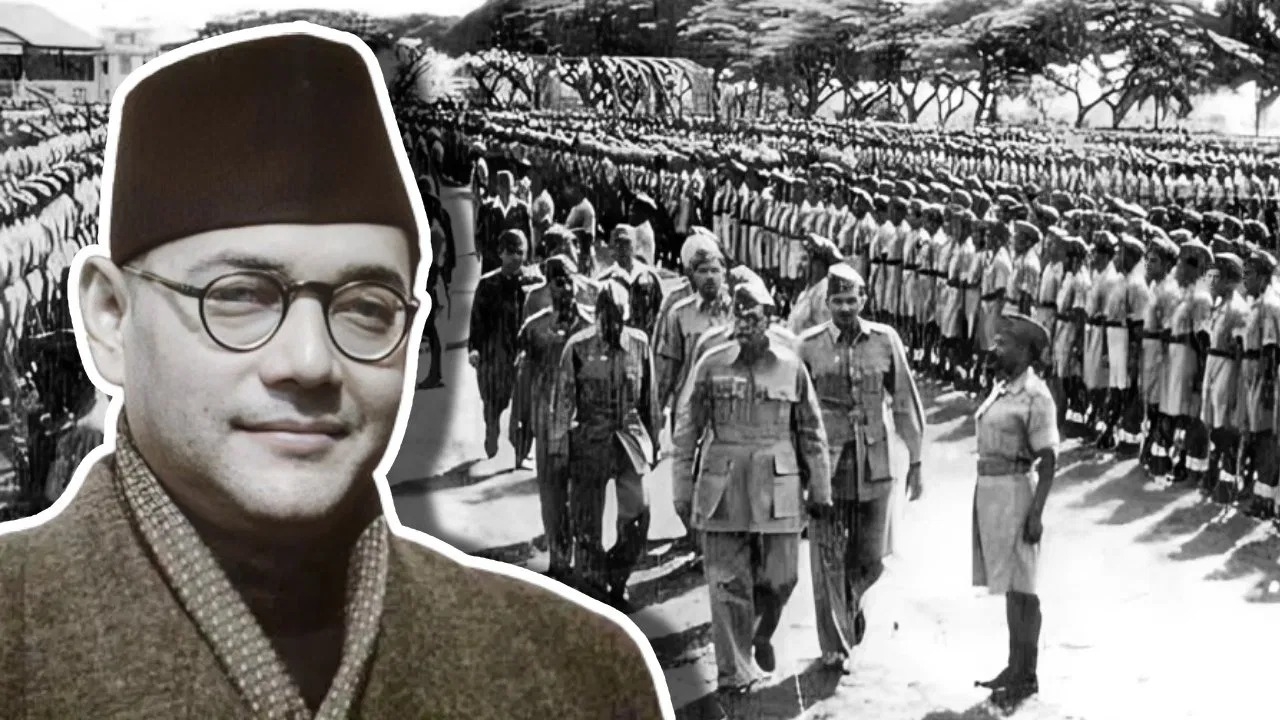हमारे महापुरुष (अंक 10) : The Legacy of Subhas Chandra Bose : A Revolutionary Spirit in the Fight for Independence

The historical narrative surrounding the revolutionary Subhas Chandra Bose remains incomplete, yet his slogan "Jai Hind" continues to resonate deeply in the hearts of many. As the commander of the Azad Hind Fauj, Bose led the fight against British colonial rule, and his contributions to India's struggle for freedom will never be forgotten.
Despite this, the mystery of his death casts a shadow over his political legacy. He famously asserted that the greatest crime is to endure injustice and compromise with wrongdoers, viewing nationalism as inspired by the highest ideals of humanity: "Truth, Goodness, Beauty." He declared, "Freedom is not given; it is taken," and he was known for his passionate calls to action.
Bose was a pivotal figure in India's freedom struggle, advocating for confrontation with the British to attain independence. A true hero, he sacrificed everything for the nation, fighting both within India and abroad. His contributions spanned from writing to leading the Azad Hind Fauj against British forces. The revolutionary spirit he ignited in Bengal during his college years significantly propelled the freedom movement.

After resigning from the Indian Civil Services (ICS) and returning to India from London, Bose met the prominent patriot Chittaranjan Das. At that time, Das had launched an English newspaper called "Forward" to campaign against British injustices. Impressed by Bose, Das appointed him as the editor of the newspaper, where he fervently criticized the British Empire, fostering a spirit of resistance. This activism led to Bose's imprisonment for six months in 1924.
Inspired by Rasbihari Bose, Netaji Subhas Chandra Bose sought international support for India's independence struggle. Evading police in Kolkata, he travelled to Germany via Kabul, where he met Hitler, who promised to assist in undermining British rule.
Bose believed that India's freedom could only be achieved by targeting Britain during World War II. He also formed a liberation army by securing the release of Indian prisoners of war in Italy and Germany.
In 1943, upon arriving in Japan, he assumed leadership of the Azad Hind Fauj, which had been founded by Captain Mohan Singh. The Azad Hind Fauj launched attacks against the British army, liberating several Indian territories by early 1944.
In a powerful speech on Martyrs' Day in September 1944, Bose called upon his soldiers, stating, "Give me your blood, and I will give you freedom." His influence inspired Indian soldiers in the British army to consider rebellion for independence.

Subhas Chandra Bose, who popularized the slogans "Jai Hind" and "Give me your blood, and I will give you freedom," was born on January 23, 1897, in Cuttack, Odisha. His father, Janakinath Bose, was a prominent lawyer, and his mother, Prabhabati, raised him alongside 13 siblings. Subhas was the ninth child and the fifth son, particularly close to his brother Sharat Chandra.
Hailing from a well-off Bengali family, Bose received his early education at Ravenshaw Collegiate School before attending Presidency College and Scottish Church College in Kolkata. His patriotic fervour was evident from a young age; he vehemently opposed anti-India remarks from his teachers, demonstrating his refusal to accept subjugation.
After leaving the civil service, he joined the Indian National Congress, driven by a desire to liberate India from political, economic, social, and spiritual struggles. When he called his fellow countrymen to rally around him, he promised nothing but sacrifice and determination.

In December 1927, Bose became the national secretary of Congress, and by 1938, he was elected its national president. His leadership inspired a willingness among the populace to make sacrifices for the cause. However, his revolutionary ideas and popularity led to friction with senior party leaders, prompting him to establish the Forward Bloc.
In 1937, Bose married his secretary, Emile, an Austrian woman, and they had a daughter named Anita, who resides in Germany. After his time in Germany, he travelled to Japan and Singapore.
Tragically, on August 18, 1945, he died in an air crash near Taiwan while en route to Tokyo, and his body was never found. The circumstances of his death remain controversial. Nonetheless, Netaji Subhas Chandra Bose's legacy endures, having ignited a profound sense of patriotism that continues to illuminate the spirit of independent India.
_202410271348154469_H@@IGHT_326_W@@IDTH_380.jpeg)